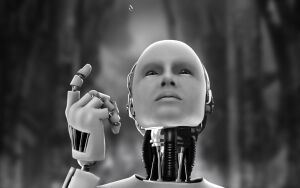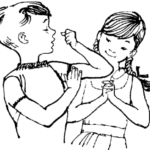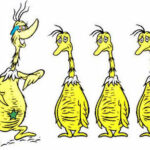October 17, 2024 Internet and virtual life
Who notices, anyway?
I robot. There are very few human beings left

This is the title of a collection of science fiction short stories written by Isaac Asimov, in which the protagonist is Dr. Susan Calvin, an extremely tenacious, frigid woman, completely absorbed in her work and with an emotionality closer to that of her objects of study, the robots, than to that of a normal human being.
Asimov makes her a character of great intelligence and cold-bloodedness, capable of resolving difficult situations often created by human inexperience or negligence, and who makes no secret of the fact that she loves robots more than humans because they are incapable of lying.
But if they are incapable of lying, robots are also incapable of making decisions, thus of having the free will and flexibility that only human reason, and not a positronic brain, is capable of expressing.
No matter how complex, a computer is still a computer.
Every decision, every nuance, every small inconsistency, if it is not established and written into the program, remains something that a mechanism, an electronic circuit can never perceive.
And in the presence of a very simple error, it will remain unresolved forever.
It is well known that I do not love robots or, as they are called today with a more fashionable term, artificial intelligence.
And the lack of love in the world today is due to the lack of soul, which of course, robots lack.
Try calling your telephone or electric company if you have a problem.
Before you get to a live operator (who is outsourced to some remote location in India whose physical address no longer exists, only an e-mail box from which a bot, then a robot, answers, of course), you have to go through a kind of maze, similar to a puzzle game, made up of keys and finger skills.
In short, you have to press the right keys before the communication breaks down.
Otherwise you have to start again from the beginning.
Eventually, after at least a score of unsuccessful attempts, you will reach an operator: probably the only one in the entire company, except for the CEO, who is busy running around with supermodels and getting elected to parliament.
The poor guy will always tell you that you have to send an email for any kind of complaint.
After you send an email, however, you will receive the usual canned reply from a robot, to which you cannot reply in any way, lest the whole file be invalidated.
The same thing happens with banks, insurance companies and government offices.
It is now a world of robots: there are very few humans left.
The invasion is complete.
Machines, robots, software now completely run the lives of that meager group of human beings who have survived extinction (for a short time yet).
A species endowed with ingenuity, a sense of beauty (or ugliness), a sense of justice (or injustice), goodness (or evil), no longer has any use or reason to exist on this planet.
It is only because of a program that it is now preserved and maintained by robots in a context similar to that of an aquarium.
Once upon a time, a long time ago, there was a real person behind this blog.
Later, Google decided that the real people behind the blogs were completely useless, just like the operators who solved problems for real people were completely useless (has anyone ever tried to contact Google to solve a problem ?), and since there are no real people anymore, the CEO of Google decided to completely eliminate all human bloggers.
Who notices anyway ?














